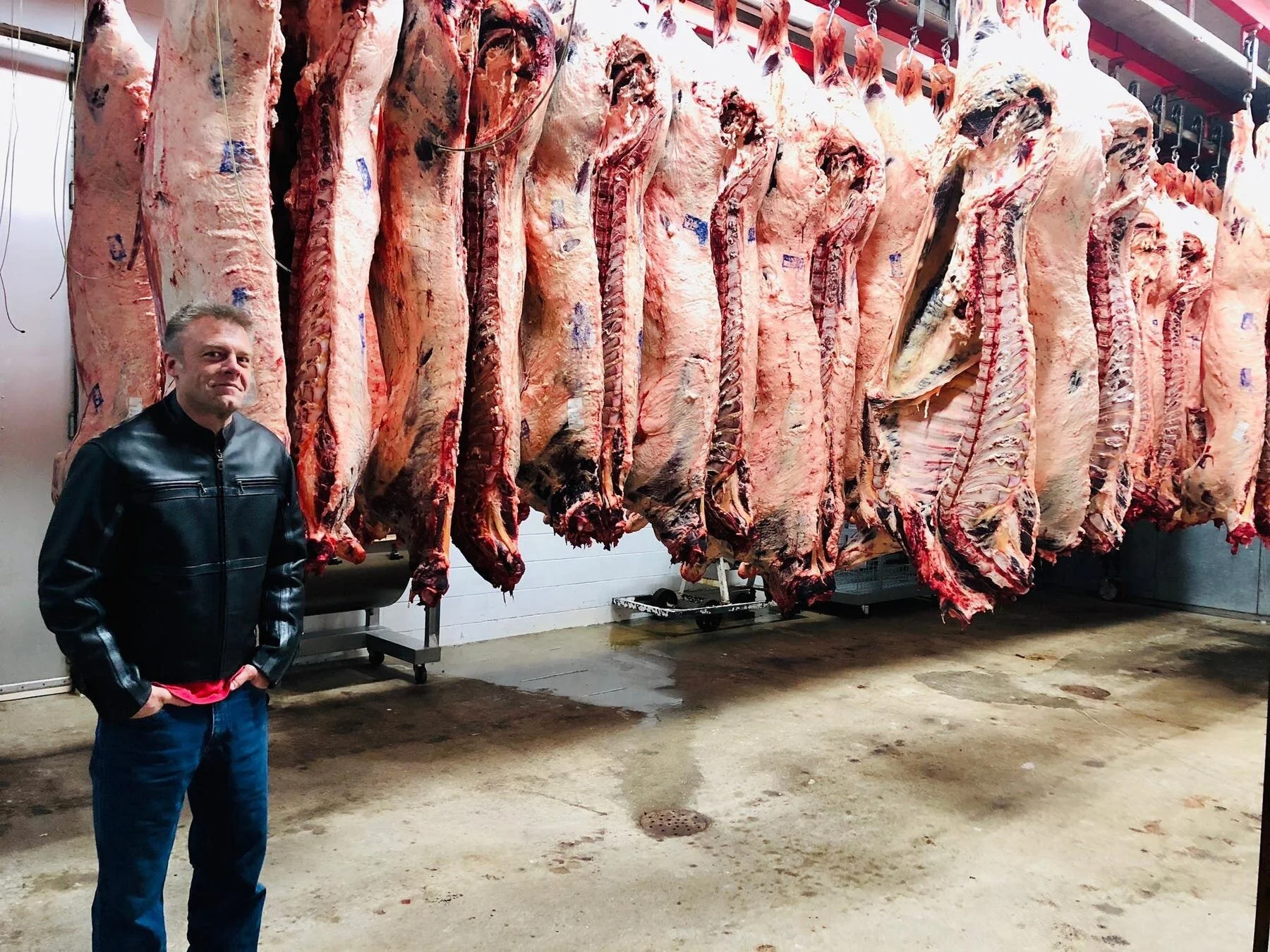Business is booming for many small, local meat processors and butchers, as massive slaughterhouses face COVID crises
Six years ago, Jacob Wingebach, a resident inspector for the U.S. Nuclear Regulatory Commission, walked away from a lucrative career 20 years in the making and bought a meatpacking plant in the heart of the Nebraska Sandhills.
"I had never cut a steak or killed an animal in my life," he said. "I was an idiot. I didn't know what I didn't know."
He had originally planned to offer grass-fed organic products, but after two years struggling to develop the niche business, he finally scrapped the idea, focusing instead on custom processing, working with area ranchers to slaughter and dry age their beef. Each year he's watched his remaining capital dwindle, just "eeking it out" and wondering how much longer he can keep at it. But over the last few months, many of the country's industrial-scale meatpacking facilities have become coronavirus hotspots and been forced to close or reduce their output. Problems at those big meatpacking facilities have created a glut of slaughter-ready livestock and a surge in demand at the Sandhills Beef Company and many other small processors.

![Rain In Its Season [Part 2]](https://images.squarespace-cdn.com/content/v1/586a9ad8579fb3ccd8a013ec/1599053006618-631ZA4NXNRZSHWDWO1F1/bartlett_rainmaker_p2.jpg)
![RAIN IN ITS SEASON [PART 1]](https://images.squarespace-cdn.com/content/v1/586a9ad8579fb3ccd8a013ec/1590067166326-OYUASD55VFEA8Y08PIDN/RainPart1%2B%25282%2529.jpg)


